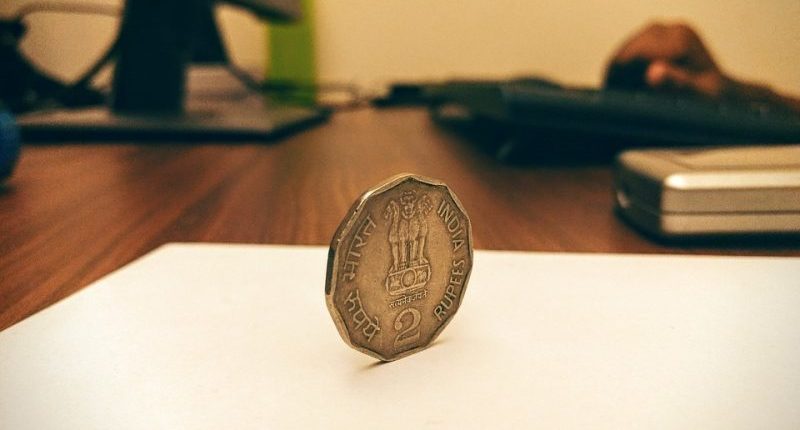The Indian stock markets have withstood against the global sell-off as they ended on a positive note on Tuesday. Yuan, the Chinese currency, has touched the decade low on the back of being tagged as a currency manipulator by the United States due to the trade tensions between the superpowers escalated to a whole new level.
The Indian rupee traded positively against the US dollar throughout the day, finally ending the day on a tad lower side despite intraday gains. The rupee on Monday fell nearly 1.63%, which is the sharpest single-day slump in six years, to end at 70.74 against the USD.
The intraday gains made by the rupee may have possibly come due to the intervention of the Reserve Bank of India (RBI). Also, the equity markets have shot up slightly on the back of RBI policy meeting. However, a further devaluation of yuan might have a direct impact on the Indian currency.
We should not be surprised if the Indian rupee touches 71 per USD in the coming days as the US and China don’t seem to be ending the trade war any time soon. The trade tension between the supergiants has resulted in a currency war. The US had previously placed yuan on the watchlist before declaring it as a currency manipulator.
India was also placed on the currency watchlist and was removed in May last week while it continued featuring China. The US Treasury carefully evaluates the developments such as foreign policy, before placing or removing a country from its currency watchlist. Extended featuring on the watchlist would ultimately result in the US declaring a nation as a currency manipulator.
The devaluation of Chinese yuan has had impacts on emerging economies such as India, Indonesia, and South Korea. The Indian rupee, South Korean won, and Indonesian rupiah have weakened against the US dollar as the Chinese yuan dropped.
A flaccid Chinese yuan will have its impact on the Indian rupee as the Indian goods will find it challenging to stay competitive globally. The trade tension might result in the Indian currency dropping as low as 71 a dollar. The August 2019 RBI policy meet has cut 35 basis points to support growth.
Also Read: India slumps seventh in global GDP rankings, France and UK go-ahead
The US President said that he would impose a tariff of an additional 10% on the Chinese imports, which are currently exempt from the US duties. The Chinese Government countered the American move by prohibiting Chinese companies from buying the Ameican farming products.
The People’s Bank of China (PBOC), which is the Chinese Central Bank played down the American claims of manipulating currency. It further said it would not further depreciate yuan to stay competitive. Any further slump in yuan is set to have a considerable impact on the currencies of emerging nations.
The Indian stock markets might see extended selling as the Indian Government did not address the investors’ concerns and levied higher tax on the super-rich. The amendments made in the Union Budget 2019-20 resulted in the foreign portfolio investors (FPIs) pulling out nearly Rs 3,800 crore from the Indian capital market in July.
2019’s July was the worst in seventeen years as it saw the benchmark indices NSE Nifty and BSE Sensex drop 5.69% and 4.86% respectively. The Indian stock markets failed to capitalise on the gains made in May last week when record levels were broken. FPIs infused Rs 10,384.54 crore in June and pulled out nearly Rs 3,800 crore in July from the Indian capital market.
Engineer by qualification, financial writer by choice. I am always open to learning new things.





